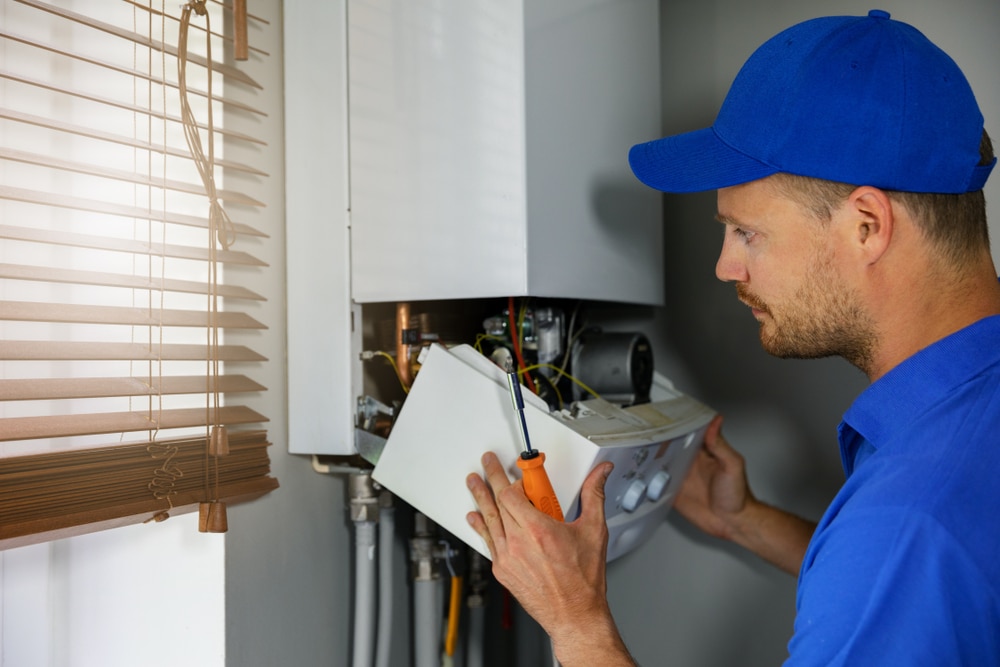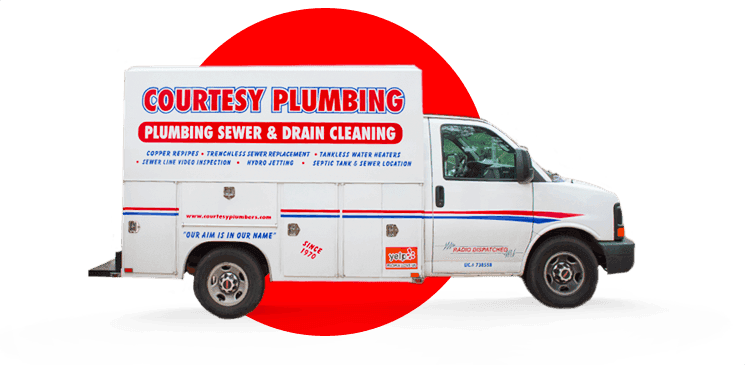Is your water heater acting up? Don’t let it ruin your day. Whether you’re dealing with a lack of hot water, strange noises, or a leaky tank, these common water heater problems can be quite frustrating. But fear not! Our team of expert plumbers in Glendora, CA is here to help you solve these issues quickly and efficiently.
In this article, we’ll discuss four of the most common water heater problems that homeowners face. By understanding the root causes of these problems, you’ll be able to take appropriate action and prevent any further damage to your water heater or home.
From faulty thermostats to sediment buildup, we’ll cover it all. We’ll also provide practical tips and solutions to fix these issues, saving you time and money in the process. So, if you’re tired of cold showers or worried about potential water damage, keep reading to find out how to get your water heater back in top shape.
No Hot Water
Having no hot water can be a major inconvenience, especially during the cold winter months. There are several reasons why your water heater may not be producing hot water.
One common cause is a faulty thermostat. The thermostat controls the temperature of the water in your heater, so if it’s not working correctly, you may end up with lukewarm or cold water. To troubleshoot this issue, check the thermostat settings and make sure they are correctly adjusted. If that doesn’t solve the problem, you may need to replace the thermostat.
Another possible cause of no hot water is a malfunctioning heating element. The heating element is responsible for heating the water in the tank. If it’s not working properly, you won’t get any hot water. In this case, you’ll need to replace the heating element.
If neither the thermostat nor the heating element is the issue, sediment buildup could be the culprit. Over time, minerals and sediment can accumulate at the bottom of your water heater tank, affecting its efficiency. Flushing the tank to remove the sediment may solve the problem and restore hot water flow.
Remember, before attempting any repairs, turn off the power supply to the water heater to ensure your safety. If you’re unsure or uncomfortable with troubleshooting the issue yourself, it’s always best to call a professional plumber.
Low Hot Water Pressure
Are you experiencing weak hot water pressure in your home? Low hot water pressure can make it difficult to shower, wash dishes, or even do laundry. Fortunately, there are a few common causes for this problem that you can easily address.
One reason for low hot water pressure is a clogged or dirty faucet aerator. Over time, mineral deposits and debris can accumulate in the aerator, restricting the flow of water. To fix this, remove the aerator from the faucet and clean it thoroughly. If the buildup is severe, you may need to soak the aerator in vinegar to dissolve the mineral deposits.
Another possible cause is a malfunctioning pressure relief valve. The pressure relief valve is designed to release excess pressure from the water heater tank. If it’s not functioning correctly, it can cause a decrease in hot water pressure. In this case, you’ll need to replace the pressure relief valve.
If neither of these solutions resolves the issue, sediment buildup could be the culprit once again. Flushing the tank to remove the sediment may help restore normal hot water pressure.
If you’ve tried these troubleshooting steps and still have low hot water pressure, it’s time to call in a professional plumber. They will be able to diagnose the problem and recommend the best course of action.
Strange Noises Coming from the Water Heater
Have you noticed strange noises coming from your water heater? Banging, popping, or rumbling sounds can be alarming, but they are often a sign of a common water heater problem.
One possible cause of these noises is sediment buildup. As sediment accumulates at the bottom of the tank, it can harden and create a barrier between the heating element and the water. When the heating element heats the water, it causes the trapped air bubbles to rise, resulting in the popping or rumbling sounds. Flushing the tank to remove the sediment can help eliminate these noises.
Another reason for strange noises is a faulty heating element. If the heating element is not working properly, it may cause the water to boil, resulting in the banging or rumbling sounds. In this case, replacing the heating element should solve the problem.
If the noises persist even after flushing the tank and replacing the heating element, it’s important to call a professional plumber. They will be able to identify the underlying issue and provide the necessary repairs.
Leaking Water Heater
A leaking water heater is a serious problem that requires immediate attention. Not only can it cause water damage to your home, but it can also lead to further damage to the water heater itself.
One common cause of a leaking water heater is a faulty temperature and pressure relief valve. This valve is designed to release excess pressure and prevent the tank from exploding. If it’s not functioning correctly, it can cause water to leak from the tank. In this case, you’ll need to replace the valve to stop the leak.
Another possible cause of a leak is a cracked or corroded tank. Over time, the tank can deteriorate due to mineral buildup or age, leading to leaks. Unfortunately, if the tank is cracked, it will need to be replaced entirely.
If you notice a leak, it’s important to turn off the power supply and the water supply to the water heater immediately. Then, contact a professional plumber to assess the situation and provide the necessary repairs or replacement.
How to Troubleshoot and Fix Common Water Heater Problems
Now that you’re familiar with the most common water heater problems, let’s discuss how to troubleshoot and fix them.
- No Hot Water: Start by checking the thermostat settings and adjusting them if necessary. If that doesn’t work, test the heating element and replace it if needed. If the issue persists, flush the tank to remove sediment buildup. If all else fails, call a professional plumber.
- Low Hot Water Pressure: Remove and clean the faucet aerator to remove any clogs or debris. If that doesn’t solve the problem, replace the pressure relief valve. Flushing the tank may also help if sediment buildup is the issue. If the problem persists, contact a professional plumber.
- Strange Noises: Flush the tank to remove sediment buildup. If the noises continue, replace the heating element. If the problem persists, seek professional help.
- Leaking Water Heater: Turn off the power and water supply to the water heater immediately. Replace the temperature and pressure relief valve if it’s faulty. If the tank is cracked, it will need to be replaced entirely. Contact a professional plumber for assistance.
When to Call a Professional Plumber
While some water heater problems can be resolved with DIY troubleshooting and repairs, there are instances when it’s best to leave the job to a professional plumber.
If you’re uncomfortable or unsure about handling electrical components, it’s always best to call a professional plumber. Dealing with faulty thermostats or heating elements can be dangerous if not done correctly.
Additionally, if you’ve attempted troubleshooting steps and the problem persists or worsens, it’s time to seek professional help. A licensed plumber has the knowledge and expertise to diagnose the issue accurately and provide the necessary repairs or replacement.
Remember, your safety and the proper functioning of your water heater should be top priorities. Don’t hesitate to reach out to a professional if you’re unsure or uncomfortable with handling the problem yourself.
Preventive Maintenance Tips for Water Heaters
Prevention is always better than cure, and the same applies to water heaters. By following these preventive maintenance tips, you can help extend the lifespan of your water heater and minimize the chances of encountering common problems.
- Regular Flushing: Flushing the tank every six months to a year can help remove sediment buildup and maintain the efficiency of your water heater. Consult your manufacturer’s instructions for the recommended flushing procedure.
- Temperature Adjustment: Set the water heater temperature to 120 degrees Fahrenheit to prevent scalding and reduce the risk of mineral buildup.
- Anode Rod Inspection: Check the anode rod every three years and replace it if it’s heavily corroded. The anode rod helps prevent corrosion in the tank by sacrificing itself.
- Insulation: Insulate the hot water pipes and the water heater tank to reduce heat loss and improve energy efficiency.
- Regular Inspections: Schedule regular inspections with a professional plumber to identify any potential issues early on. They can also perform maintenance tasks that require specialized knowledge or tools.
By incorporating these preventive maintenance tips into your routine, you can save money on repairs and ensure that your water heater continues to function optimally.
Importance of Regular Water Heater Inspections
Regular water heater inspections are essential for maintaining the efficiency and safety of your water heater. Here’s why you should prioritize these inspections:
- Early Problem Detection: A professional plumber can identify any potential issues before they become major problems. By catching problems early, you can avoid costly repairs or replacements down the line.
- Maximize Efficiency: Regular inspections and maintenance tasks, such as flushing the tank or replacing the anode rod, can help maintain the efficiency of your water heater. This, in turn, can lead to energy savings and lower utility bills.
- Ensure Safety: Water heaters can pose safety risks if not properly maintained. Inspections help ensure that all safety features, such as the temperature and pressure relief valve, are functioning correctly, reducing the risk of accidents.
- Extend Lifespan: By taking care of your water heater through regular inspections and maintenance, you can help extend its lifespan. This means you won’t have to replace it as often, saving you money in the long run.
Don’t underestimate the importance of regular water heater inspections. Schedule these inspections with a professional plumber to keep your water heater running smoothly and efficiently.
Conclusion and Final Thoughts
Dealing with common water heater problems can be frustrating, but with the right knowledge and troubleshooting steps, you can solve these issues and restore comfort to your home.
Remember to start with simple troubleshooting techniques, such as adjusting the thermostat or cleaning the faucet aerator. If these steps don’t solve the problem, consult a professional plumber who can diagnose and fix the issue safely and efficiently.
Additionally, taking preventive measures, such as regular flushing and inspections, can help prolong the lifespan of your water heater and minimize the chances of encountering problems in the future.
Count on Courtesy Plumbers in Glendora, CA to help you troubleshoot and resolve any water heater problems. Our team of expert plumbers is dedicated to providing top-notch service and ensuring your satisfaction.
Don’t let water heater problems disrupt your daily routine. Take action today and enjoy the benefits of a fully functional water heater.



